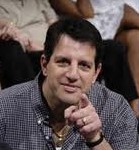 Like many sports fans, I have been following the situation with the Miami Dolphins that describes an incident as “hazing.”
Like many sports fans, I have been following the situation with the Miami Dolphins that describes an incident as “hazing.”
Two teammates, by most accounts friends, get into something that causes one to quit the team and the other to be suspended indefinitely without pay. Everyone in the organization from the coaches to the general manager is in fear for their jobs.
When I read the articles trying to make sense of the situation I go from bewilderment to anger to head-scratching. I marvel as idiot reporters struggle to explain the actions of players by using societal norms while quoting textbook-writing psychologists. Each text, email, conversation and action is taken out of context and dissected. If you believe what you read, one player is either weak or strong. The other is either a racist ax murderer or a great teammate and friend.
The absurdity of the coverage truly shows just how little understanding there is about sports on the most basic level. How do players interact and build that most elusive quality, a team?
Let me let you in on a little fact that will explain why 90 percent of what you read about this situation is garbage.
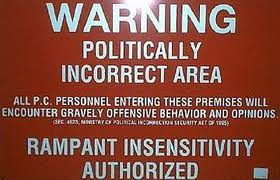 Professional sports team locker rooms are among the least politically correct places on earth.
Professional sports team locker rooms are among the least politically correct places on earth.
Every story that you read trying to make sense out of a single text message, voice mail or other piece of data is a complete waste of time and energy. All of these items can be made to mean whatever you want them to mean. The reporters have no clue what they are talking about.
While I don’t know Jonathan Martin or Richie Incognito personally and have never been in a NFL locker room, it is pretty easy to read between the lines, having been in dozens of pro locker rooms and knowing thousands of professional athletes.
Here are my observations as we peek into the locker room:
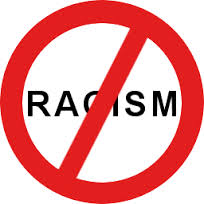 1. There are no hard-core racists in pro sports.
1. There are no hard-core racists in pro sports.
Sports are among the most race-conscious and race-neutral places in the world. While it is pretty easy to tell the white guys from the black guys in the locker room, once the game starts there is little that is less important. Either you can play or you can’t. It’s that simple.
Any real racists are washed out of the game at one of its earlier stages. I will freely admit that race is a constant and obvious issue in sports. But it is talked about openly, and teammates joke about it. I took pride in being a great teammate and was considered an honorary brother my entire career. That didn’t mean that I listened to rap music, but it did mean that I could be trusted.
I played in a college All-Star tournament with a player from a small college who bragged that he “hated” blacks, using the N-word to refer to them.
When we heard that, there was not a player – white or black – that would be around him, let alone pass him the ball in a game. Once that got out, he was finished.
2. Friends and teammates are very different things.
Guys don’t have to get along to be great teammates. There are many examples of teammates hating each other socially and still playing together like lifelong buddies. In basketball, where the team is pretty small, there are fewer opportunities to hide. In football, with the large number of players and vast differences in mindset by position, players tend to hang out more by position. Kickers and quarterbacks see the world much differently than linemen, for instance.
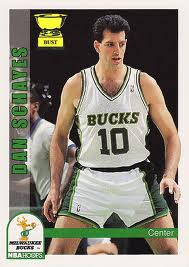 3. I had many great teammates in my career.
3. I had many great teammates in my career.
“Great teammate” is among the highest compliments that I can bestow on a player. When I was with the Bucks I had the pleasure of playing with a great teammate in Alvin Robertson. Alvin was one tough dude and rough around the edges. He had many off-court issues but was a great teammate. He always had your back and you knew that you could count on him if things got rough.
4. There are no soft players that last.
To get to the pro level, a player has been challenged thousands of times on every level. If he were truly soft, he would never make it to the pros. Every day there is some challenge to his toughness. It may be physical or mental, but he will be challenged. He has to play through pain, get physically assaulted on a play, ripped in the media, booed by the fans, play through exhaustion, cost his team a game, or be in a high-profile one-on-one matchup. There is no way to rise to the top if you can’t handle it.
5. Players get washed out when they can’t cope.
I have had teammates leave the game because they were homesick or afraid to fly. If you don’t answer the call when challenged, word will get around and opponents will target you repeatedly. There are certainly guys who bend, fail, and pick themselves up. But if you truly don’t have what it takes, you won’t last very long.
Both Michael Jordan and LeBron James were labeled losers early in their careers. I think it is safe to say that both overcame that designation pretty well.
During my first practice as a rookie with the Utah Jazz, I was in a one-on-one ballhandling drill when guard Carl Nicks got all up in my grill and started pushing me all over the court to see what I would do. I wasn’t expecting this from my own teammate and I almost went off on him. I had to be calmed down when I realized that he was challenging me to see what I was made of. We later had a laugh about it. Looking back, if we had come to blows, he probably would have kicked my ass. But I learned a great lesson.
6. You need to have thick skin like an elephant.
As I mentioned before, pro sports locker rooms are among the least PC places on earth. Players drop the N-word, F-bombs by the millions and display every disgusting habit possible. There is no room for politeness or worrying about someone’s feelings.
(RELATED: Schayes discusses hazing and locker room culture in podcast on 740AM-Orlando)
They are also the funniest places on earth and for men especially, one of the few places that you get to hang out with a bunch of men and truly be yourself. But beware, you will be cracked on, insulted, made fun of and embarrassed. You will have the opportunity to give as good as you get and be secure in the knowledge that whatever happens will stay in the locker room.
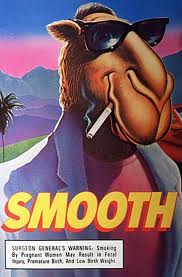 During the late 1980s, my nickname was “Smooth.” It was a pretty cool nickname so I went with it. It was a perfect example of how things stay in the locker room. To the public I was “Smooth.” But all of my teammates knew the real story. The nickname was short for Smooth Character, the description of Joe Camel, the mascot in the Camel cigarette ads.
During the late 1980s, my nickname was “Smooth.” It was a pretty cool nickname so I went with it. It was a perfect example of how things stay in the locker room. To the public I was “Smooth.” But all of my teammates knew the real story. The nickname was short for Smooth Character, the description of Joe Camel, the mascot in the Camel cigarette ads.
One of the players thought that there was a strong resemblance between me and Joe – I guess it was the nose – and a nickname was born. They would keep congratulating me on scoring such a big endorsement deal!
For the next 10 years I would laugh every time I saw Joe in an ad.
The important thing is that you can’t take anything personally. The ribbing gets fierce and there is no room for hurt feelings. Sometimes it gets nasty so you need to be able to let it go.
If you ask any retired athlete, “What do you miss the most?” the most common answer that you will hear is “Hanging out in the locker room with the guys.”
So what happened with the Dolphins that has everyone talking about locker room etiquette? How did hazing become so big an issue that the NBA sent an emergency memo to all 30 teams denouncing the practice? Why are we calling one player a racist when all of his teammates are saying the opposite? Why are we calling a player soft who has gone into physical battle every week for years?
I see two things at work here. They both involve breaking the most basic rules in sports.
I completely agree.
We coddle these players and make them leave a game just because of a “concussion”. Professional sports are just like war (without the stakes). I wouldn’t want a soldier/tight end next to me on the battlefield/practice field who hasn’t shown themselves able to hide their emotions until a later time (preferably in retirement or in the offseason).
Tom has a great point as well, if Royce White had been bullied- it would have cured his mental issues- look it up, it’s science. He was actually diagnosed with “Softness” I think. I guess it may have led to something bad, but isn’t that why you have malpractice insurance?
We don’t want to watch sports to see the best athletes, we want to see the ones who can take the most verbal abuse. This is how we teach our kids to suck it up and get tougher.
Look, I appreciate that I will never have the insight into the lockerroom that a former athlete has.
But to take his experience and then extrapolate it across all sports and all lockerrooms in all situations is absurd.
“There are no hardcore racists in sports”
Really? You feel comfortable making that absolute a statement when you yourself have only intimate familiarity with one? Please. Unless you’re telling me ALL professional athletes are more enlightened than your average racist, I would guess that the percent of “racists” in the real world isn’t that much larger than the percent of racists in a lockerroom.
You guys have a very different job in an industry that is very different than most others. That does not mean you all suddenly escape general societal woes that everyone falls victim to. I guarantee you’ve played with at least one “hard-core” racist before. And what is the difference between a hard-core racist and a regular one? Are you saying you did play with “normal” racists but were OK with them?
Also, your numerous points contradict yourself on a number of occasions.
You know as little as we do about what happened; you’re just upset some unspoken code was broken. I would think the lockerroom would have codes about not saying stuff about each other’s sisters the way Incognito did. I’m not calling him a racist, but in any context, what he said there was inappropriate and unacceptable; between brothers, between teammates, between whatever you want to call yourselves – you don’t have to sacrifice your humanity to play a sport. It’s the choice you all have decided to make when you write stuff like this.
Well written, honest, and interesting comments on this hot topic. I do however, wish that Royce White could have been bullied before that loon’s career ended…Great work by Sheridan to add Danny Shayes as a columnist.